Introduction
Are Ferrets Blind: Ferrets, those endearing and mischievous members of the Mustelidae family, have long captured the hearts of pet enthusiasts and curious onlookers alike. With their sleek bodies, inquisitive nature, and boundless energy, ferrets are truly unique creatures. However, when it comes to their visual abilities, there has been much speculation and misunderstanding. In this exploration, we embark on a journey to unravel the enigmatic world of ferrets cage vision, shedding light on the truth behind their often-misunderstood eyes. Ferrets, like many animals in the animal kingdom, have adapted to their environments in fascinating ways, and their visual system is no exception. While they might not be known for their keen eyesight, ferrets have a unique set of characteristics that influence how they perceive the world around them.
To understand the intricacies of ferret vision, we’ll delve into the biological aspects of their eyes, examine their visual limitations, and discover how their other senses compensate for any deficiencies in their sight. By the end of this exploration, we hope to shed light on the question of whether ferrets are truly blind and gain a deeper appreciation for the remarkable adaptations that make them the captivating creatures they are. In our quest to uncover the truth about ferret vision, we’ll delve into the physiological aspects of their eyes. Unlike humans and many other mammals, ferrets have relatively small eyes, which might lead to the misconception that they have limited visual capabilities.
We’ll explore the anatomy of their eyes, discussing their rod and cone cells, which are responsible for low-light and color vision, respectively. To truly grasp the extent of ferret vision, we must also consider their unique lifestyle. Ferrets are crepuscular animals, meaning they are most active during the dawn and dusk hours. This preference for low-light conditions has implications for their visual abilities and how they navigate their surroundings. However, ferrets are not solely reliant on their vision. We’ll delve into their other heightened senses, particularly their sense of smell and hearing, and how these senses complement their visual shortcomings.
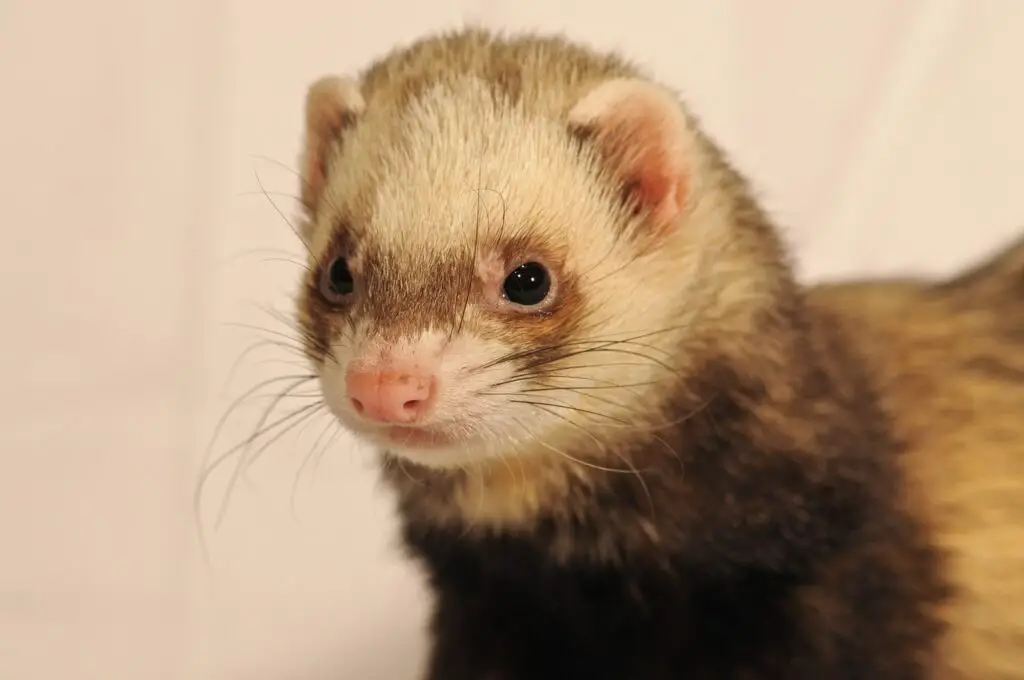
What is ferrets vision like?
Ferrets don’t see much detail beyond a few feet, although at close range – say one or two ferret lengths – they actually see better detail than humans and cats. Ferrets have a blind spot right in front of their nose, which is why they sniff when looking at something close-up.
Low-Light Adaptation: Ferrets are crepuscular animals, meaning they are most active during dawn and dusk. Their eyes have adapted to these low-light conditions, featuring a high density of rod cells, which are specialized for detecting light in dim environments. This adaptation allows ferrets to see relatively well in low light, making them adept hunters during their preferred times of activity.
Limited Color Vision: Unlike humans, ferrets have limited color vision. Their eyes contain a relatively low number of cone cells, which are responsible for color perception. While they can distinguish between some colors, their world is predominantly viewed in shades of gray.
Peripheral Vision: Ferrets have a wide field of vision due to the positioning of their eyes on the sides of their heads. This peripheral vision helps them detect movement and potential threats from various angles, an essential skill in the wild.
Depth Perception: Ferrets may lack binocular vision, which is the ability to perceive depth through the overlapping fields of vision of both eyes. However, they compensate for this limitation with their keen sense of touch and whiskers, which help them navigate and explore their surroundings with precision.
What is the eye disease in ferrets?
Conjunctivitis in ferrets can be caused by viral or bacterial infection. Ocular signs of canine distemper virus, a fatal disease in ferrets, are mucopurulent oculonasal discharge, blepharitis, corneal ulcers, and keratoconjunctivitis sicca.
Conjunctivitis, also known as “pink eye,” is a common eye condition in ferrets. It occurs when the conjunctiva, the thin membrane covering the eye’s surface, becomes inflamed. Symptoms may include redness, discharge, squinting, and increased tear production. Conjunctivitis can result from various factors, such as allergies, infections, or foreign objects in the eye. Treatment often involves cleaning the eye and administering topical antibiotics or anti-inflammatory medications.
Cataracts are a clouding of the eye’s lens and can lead to impaired vision or blindness if left untreated. Older ferrets are more prone to developing cataracts, but they can occur at any age. Symptoms include a cloudy appearance in the eye, changes in behavior, and decreased vision. Cataract surgery is an option for some ferrets to restore their vision, but not all cases require intervention.
Glaucoma is a condition characterized by increased pressure within the eye, which can lead to optic nerve damage and vision loss. Symptoms include redness, pain, enlarged eye(s), and changes in behavior. Glaucoma is a serious condition that requires immediate veterinary attention. Treatment may involve medications to reduce intraocular pressure or surgery in severe cases.
Ferrets can develop retinal diseases, such as retinal atrophy, which can result in progressive vision loss. These conditions are often hereditary and may not have a cure. Regular veterinary check-ups can help monitor the progression of these diseases and manage any secondary complications.
Do ferrets smell bad?
The natural musky odor of ferrets comes from their scent glands (most notably the anal glands) and is used for territorial marking. Most commercially available ferrets in the United States are “de-scented,” which means that they have gone through a surgical procedure to remove their anal glands.
Ferrets, with their mischievous personalities and playful antics, make delightful and endearing pets. However, one common concern among potential ferret owners is the perception that ferrets have a strong and unpleasant odor. While it is true that ferrets have a distinctive scent, it’s essential to understand the causes behind it and how to manage it effectively.
Ferrets use their scent to communicate with each other. Each ferret has its individual scent, allowing them to identify one another and mark their territories. In the wild, ferrets’ musky odor helps mask their scent from potential prey, making them more effective hunters. During the breeding season, ferrets emit stronger odors as a part of their mating behavior.
Poor-quality diets can lead to stronger, less pleasant odors in ferrets. Feeding high-quality ferret food can help mitigate this issue. Dirty bedding, cages, and litter boxes can contribute to odor buildup. Regular cleaning is essential to prevent this. Unaltered ferrets may emit stronger scents during breeding seasons. Spaying or neutering can help reduce this effect.
Do cats see ferrets as prey?
Ferrets are small, like prey, but they don’t act or smell like prey. Ferrets hop up and down alarmingly. They sneak up and try to burrow into soft cat fur. So cats frequently decide whatever this thing is, it’s to be avoided.
When introducing cats and ferrets or allowing them to interact, always supervise their interactions. This allows you to intervene if any aggressive behavior occurs.
Provide separate living spaces for cats and ferrets, each with their essentials, including food, water, and litter boxes. This minimizes the potential for territorial disputes.
Ensure that both cats and ferrets have plenty of mental and physical stimulation to keep them occupied and less likely to focus on each other as potential prey.
If you are introducing a new ferret or cat to your household, do so gradually and under controlled circumstances to allow them to become familiar with each other’s presence.
What is a ferret kiss?
Kissing. Just as in humans, your ferret kissing you on the lips can be a sign of affection. It can also mean that your ferret likes the flavor of your lip balm or of the turkey sandwich that you had for lunch.
Social Bonding: Ferrets are highly social animals that thrive on companionship. When a ferret gives you a kiss, it is a sign of their affection and a way of strengthening the social bond between you and your pet.
Scent Recognition: Ferrets have a keen sense of smell and use scent to recognize and bond with their owners. Nuzzling your face or hands allows them to deposit their scent on you, marking you as part of their territory and social group.
Playful Behavior: In many cases, ferret kisses are also a form of playfulness. Ferrets are known for their mischievous and playful antics, and kissing can be a part of their interactive and fun-loving nature.
Mimicking Grooming: Ferrets groom themselves and each other as a form of bonding and social interaction. Kissing can mimic this grooming behavior and serve the same purpose when directed at their human companions.
Can ferrets cry?
It is not so much what the ferret does as it is a change in behavior. In other words, while ferrets stoically won’t show pain or distress by crying, they often signal pain with behavioral changes.
Ferrets do not cry in the same way that humans do, with tears streaming down their faces. Unlike humans, ferrets do not possess the necessary tear ducts to produce visible tears. However, ferrets have their ways of communicating distress, discomfort, or emotions.
Ferrets also communicate through body language. When experiencing distress or discomfort, they may exhibit behaviors such as restlessness, pacing, or puffing up their fur. These non-verbal cues can provide valuable insights into a ferret’s emotional state.
Ferrets are sensitive creatures, and stress can affect their well-being. Environmental changes, health issues, or improper care can lead to stress in ferrets, which may manifest as vocalizations or behavioral changes. It’s crucial for ferret owners to be attentive to these signs and address any underlying issues promptly.
Can ferrets feel sad?
Ferrets can be very emotional at times. You may be surprised to find your ferret is prone to depression. Like humans, ferrets will grieve the loss of a friend, either human or animal. Sad ferrets may spend time in areas their buddy used to frequent.
Ferrets, with their playful and curious nature, are beloved pets known for their entertaining antics. While ferrets may seem carefree most of the time, many pet owners wonder if these small carnivores can experience emotions like sadness.
Ferrets are highly social animals that form strong bonds with their human caregivers and fellow ferrets. Like all living creatures, they have emotional responses to various situations and experiences, but it’s important to remember that their emotions may be different from those of humans.
Ferrets thrive on social interaction and can become sad when left alone for extended periods. Having a companion ferret or spending quality time with them can alleviate loneliness. Ferrets may feel sad or uncomfortable when they are unwell or in pain. Regular veterinary check-ups are essential to address health issues promptly.
Changes in their living environment, such as moving to a new home, can be stressful for ferrets. Ferrets can mourn the loss of a companion animal, and their behavior may change in response to this loss.
What causes pig eye?
Conjunctivitis in swine is a common finding, usually considered to be a secondary symptom of respiratory or viral systemic disease, or a result of irritation by dust or ammonia, or of local infections with Mycoplasma (M.)
“Pig eye” is a colloquial term used to describe a condition in pigs where one or both eyes appear abnormally enlarged or protruding. While this condition is commonly observed in pigs, it is essential to understand its potential causes and management to ensure the well-being of these animals.
Dental problems in pigs, such as abscesses or malocclusion (misalignment of the teeth), can indirectly lead to pig eye. The roots of upper molars are located close to the eye sockets, and dental issues can cause secondary eye problems.
Inadequate nutrition, particularly a lack of vitamin A, can result in ocular problems, including pig eye. Vitamin A deficiency can affect the mucous membranes and cause eye-related issues.
Some pig breeds may be more predisposed to eye-related problems due to genetic factors. Breeding practices should be monitored to minimize the risk of hereditary eye conditions.
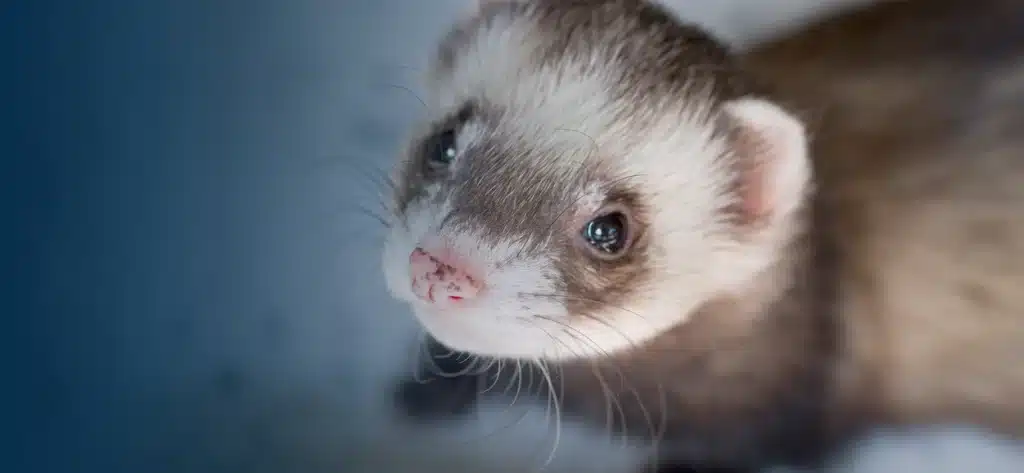
Conclusion
While ferrets are not blind, their visual abilities are indeed unique compared to humans and some other mammals. Their small eyes and preference for crepuscular activities suggest limitations in their vision, particularly in low-light conditions. However, ferrets blind compensate for these limitations with their heightened senses of smell and hearing, creating a holistic approach to perceiving and navigating their environment. As we’ve explored the biological aspects of their eyes and the context of their lifestyle, it becomes clear that ferrets possess a well-adapted visual system tailored to their specific needs. They excel in situations where other senses come into play, such as hunting and exploration during dawn and dusk. This adaptability contributes to their success both in the wild and as cherished companions in households worldwide.
While ferret vision may not be as robust as that of some other animals, it is essential to recognize that their unique set of sensory tools, including their vision, plays a crucial role in their lives. Understanding the intricacies of ferret vision not only dispels misconceptions but also deepens our appreciation for these fascinating creatures and their remarkable adaptations. So, whether you’re a ferret enthusiast or simply curious about the natural world, the question of whether ferrets are blind has been answered, revealing the captivating and nuanced world through their eyes.
In our exploration of ferret vision, we’ve uncovered a world that is far from being shrouded in darkness. Ferrets are not blind, but rather they possess a vision system uniquely attuned to their needs and lifestyle. Their ability to navigate their environment, hunt for prey, and engage in their characteristic playful antics is a testament to their adaptive qualities. Moreover, the study of ferret vision serves as a reminder of the incredible diversity of the animal kingdom. Each species, whether domesticated or wild, has evolved specific sensory adaptations that allow them to thrive in their particular ecological niches. Ferrets are no exception, and their visual abilities, though different from our own, have enabled them to carve out a niche in the ecosystems they inhabit.


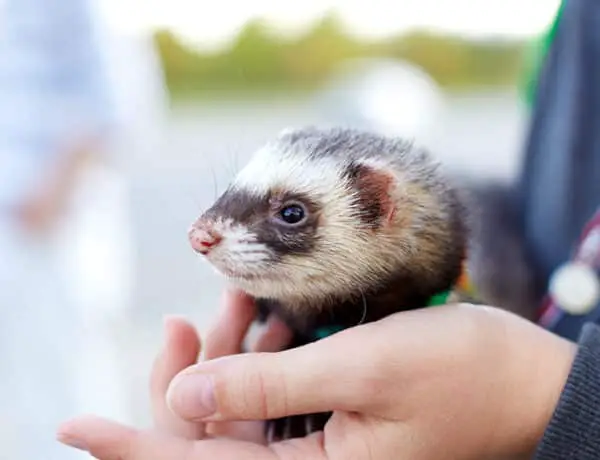
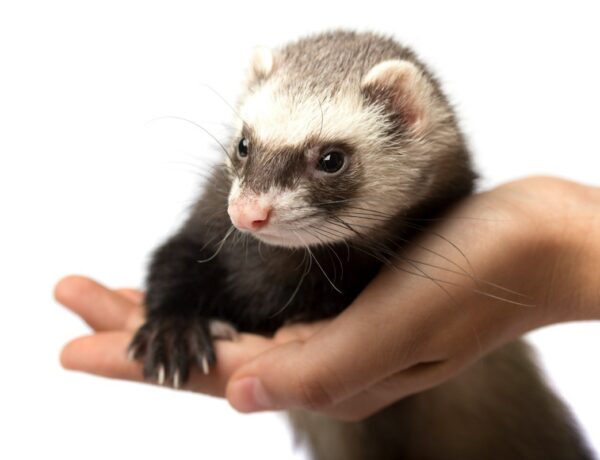
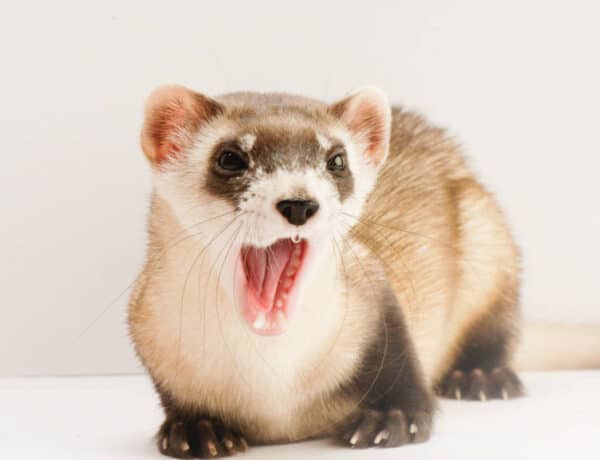
No Comments